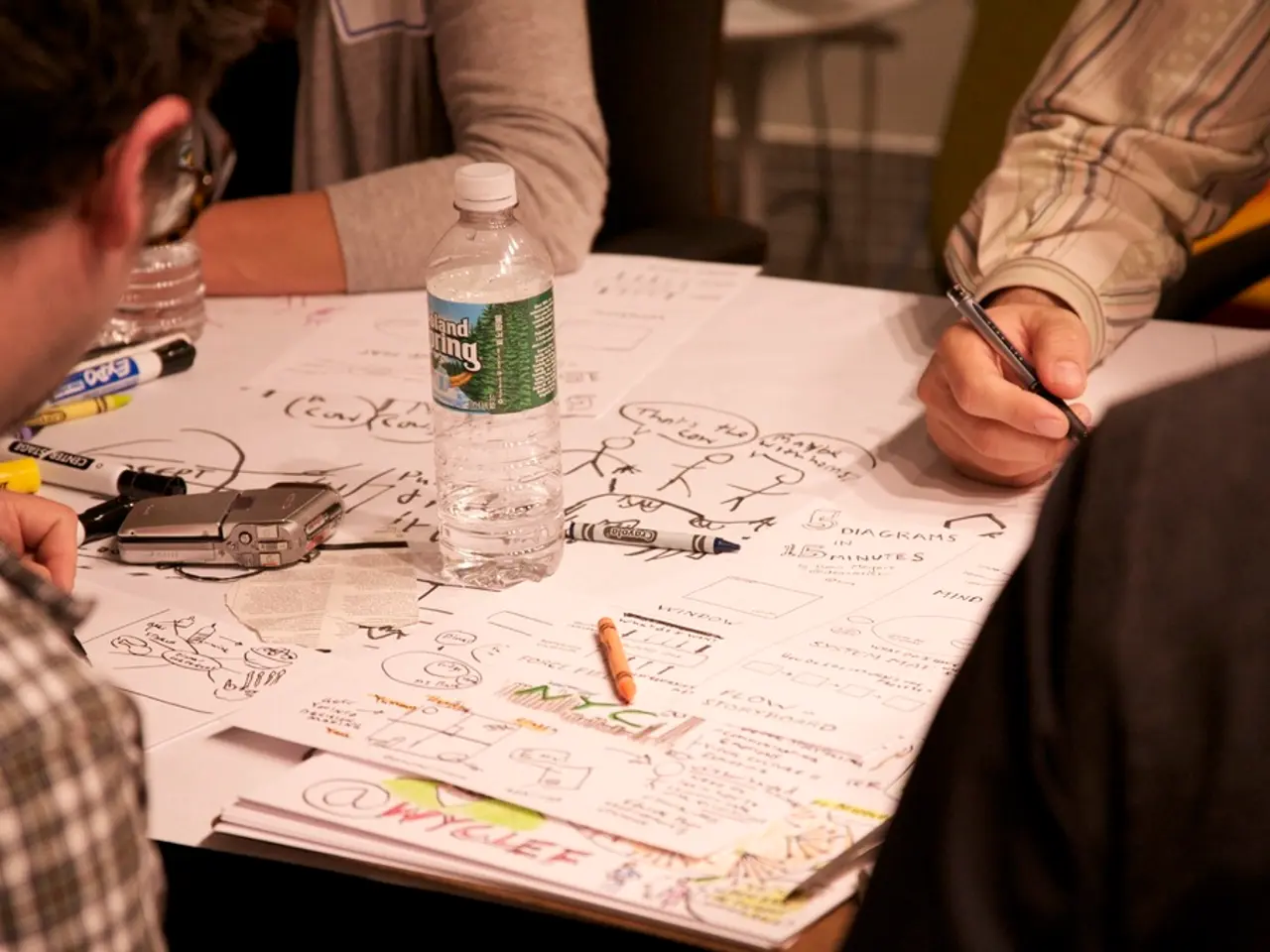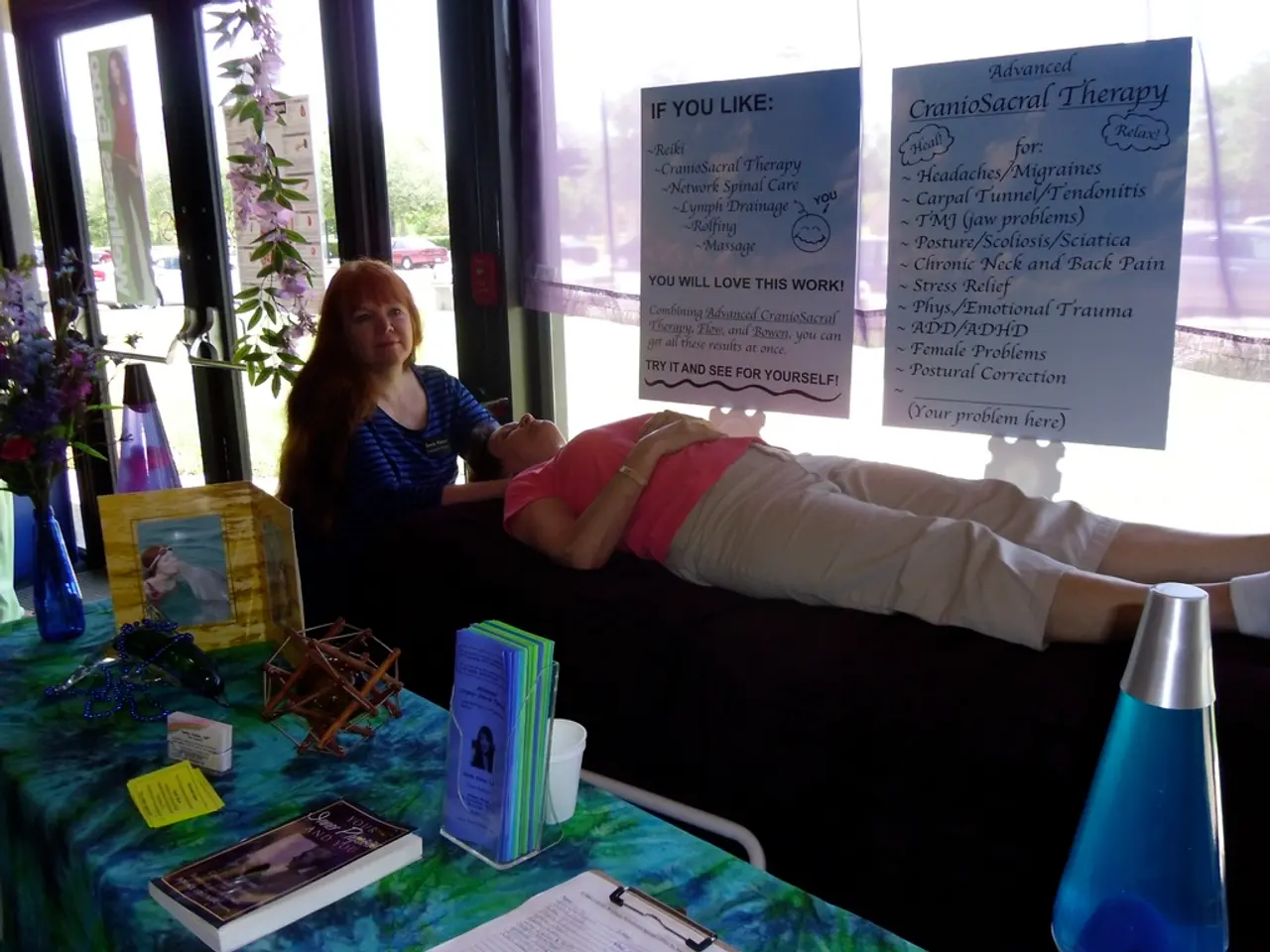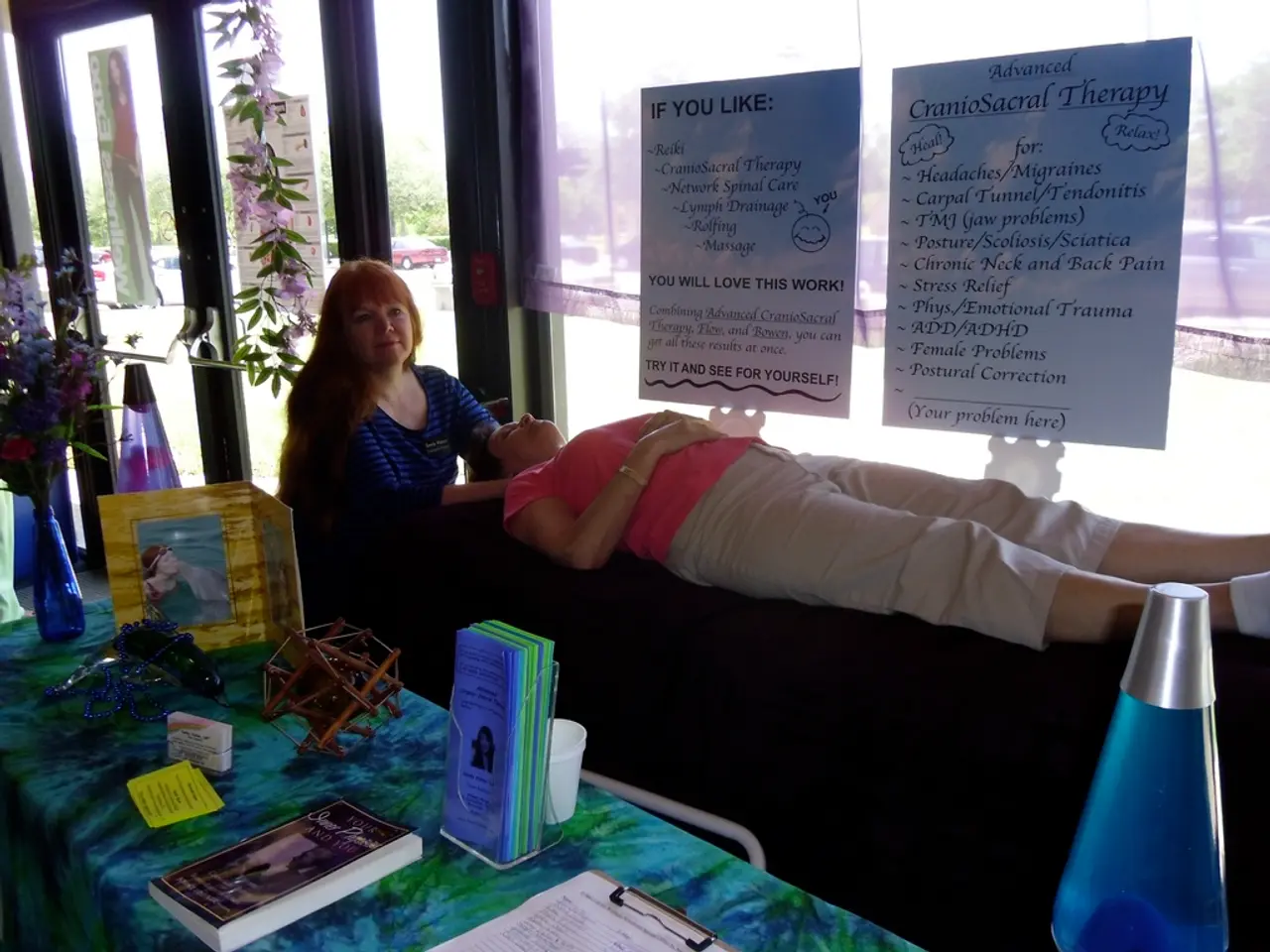Alarming Developments: A Global Mental Health Crisis Amidst the Uncontrolled Spread of Social Media Among Youth
A Shocking Rise in Psychological Problems Among Youth
Skyrocketing internet addiction among adolescents sets new records, surpassing previous highs.
Social media platforms, intended to bring people together, have instead led to a frightening global increase in mental health problems among young people, particularly children and adolescents. A staggering one in seven children aged 10 to 19 is reported to be suffering from mental health issues, according to a report by child protection organization KidsRights and Erasmus University in Rotterdam.
The King of Netherlands-based organization's chairman, Marc Dullaert, describes the current situation as a "wake-up call" that we can no longer ignore. The mental health crisis among our youth has reached a tipping point, Dullaert warns, exacerbated by the unchecked spread of social media platforms prioritizing user numbers "over the safety of children."
The Role of Instagram and TikTok
Problematic use of popular social media platforms such as Instagram and TikTok is on the rise, the report asserts, with studies suggesting a potential link between excessive social media and internet use and an increase in suicide attempts among youth. According to official statistics, there are six suicides per 100,000 youth in the 15 to 19 age group. However, KidsRights dismisses this figure as merely the "tip of the iceberg," as suicides often remain unreported due to social stigma.
Social Media Consumption in Europe
Europe leads the world in the risk of 13-year-olds engaging in problematic online network use, with 13% of this age group at risk, according to the report. Furthermore, with a whopping 39% share, the prevalence of internet addiction among 15-year-olds in Europe is "unprecedented."
KidsRights' Approach
KidsRights insists on refraining from blanket internet bans for minors, stating such bans interfere with the civil and political rights of children. Rather, the organization calls for comprehensive global research into the effects of social media use on young people, improved education, and additional training for psychologists.
The Call for Action
"We need concrete measures to ensure that the digital revolution boosts the well-being of the world's 2.2 billion children and does not endanger it," said KidsRights chief Dullaert. He emphasized that "the time for half-measures is over." Last week, EU digital ministers discussed the proposal of certain European countries to ban online networks such as TikTok, Instagram, and YouTube for anyone under 16 and strictly control users' ages. They sought support from the EU Commission to propose binding EU-wide rules for this matter.
Although age restrictions already apply to online networks, there is no actual control, as users only need to enter a birthdate upon registration.
Sources: ntv.de, uzh/AFP
Additional Information
- Global Engagement: Over 4.7 billion people are active on social media, with teenagers and young adults being the most affected by social media addiction[1].
- Platform Preferences: YouTube is the most used platform among teens (95%), followed by TikTok (66%), and Instagram is also popular (about 62%)[2].
- Average Screen Time: Teenagers spend an average of 7 hours and 22 minutes per day in front of screens, which equates to 43% of their waking hours[3].
- Mental Health Concerns: Excessive social media use has been linked to increased anxiety, low self-esteem, and feelings of loneliness among teenagers[1].
- Suicidal Ideation: Teens who use social media for more than five hours a day are at a higher risk of experiencing adverse mental health outcomes, including suicidal ideation[1].
- FOMO and Anxiety: Many teens report experiencing anxiety when they cannot access their social media accounts, highlighting their psychological dependence on these platforms[2].
- Addiction Rates: Approximately 47% of teens feel addicted to social media, affecting their sleep and focus[2].
- Impact of Algorithms: Platforms like TikTok and Instagram use algorithms that can lead to addictive patterns, as they repeatedly update content to keep users engaged[1].
These emerging trends and consequences emphasize the urgency of promoting responsible social media use and supporting mental health issues related to internet addiction.
[1] Pew Research Center. (2020). Teens, Social Media, and Technology Overview 2020. [2] Rideout, V. et al. (2019). The Common Sense Census: Media Use by Tweens and Teens. [3] Shapira, M., et al. (2016). Children in the Digital Age: Growing Up in a Wired World. [4] OFCOM. (2021). Children and Parents: Media Use and Attitudes Report. [5] Vox. (2021). Half of young people want to delete social media. So why can't they?
- The community policy should address the concerning link between social media platforms like Instagram, TikTok, and mental health issues among youth, focusing on the impact of excess usage and addictive algorithms.
- In light of the global mental health crisis among youth, a comprehensive and scientific approach to health-and-wellness education, including mental health, should be integrated into youth policies to protect and promote the well-being of children and adolescents in the digital age.








